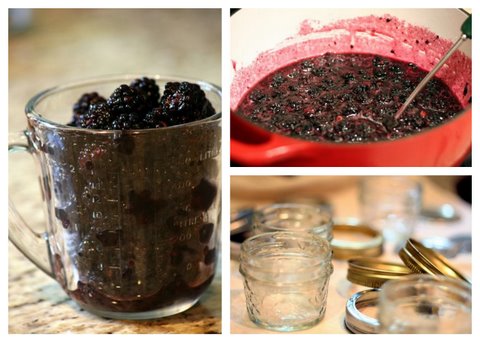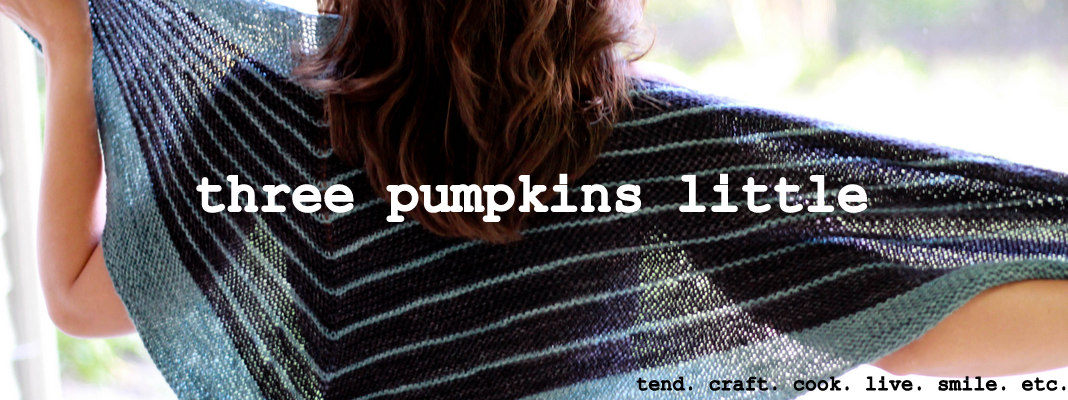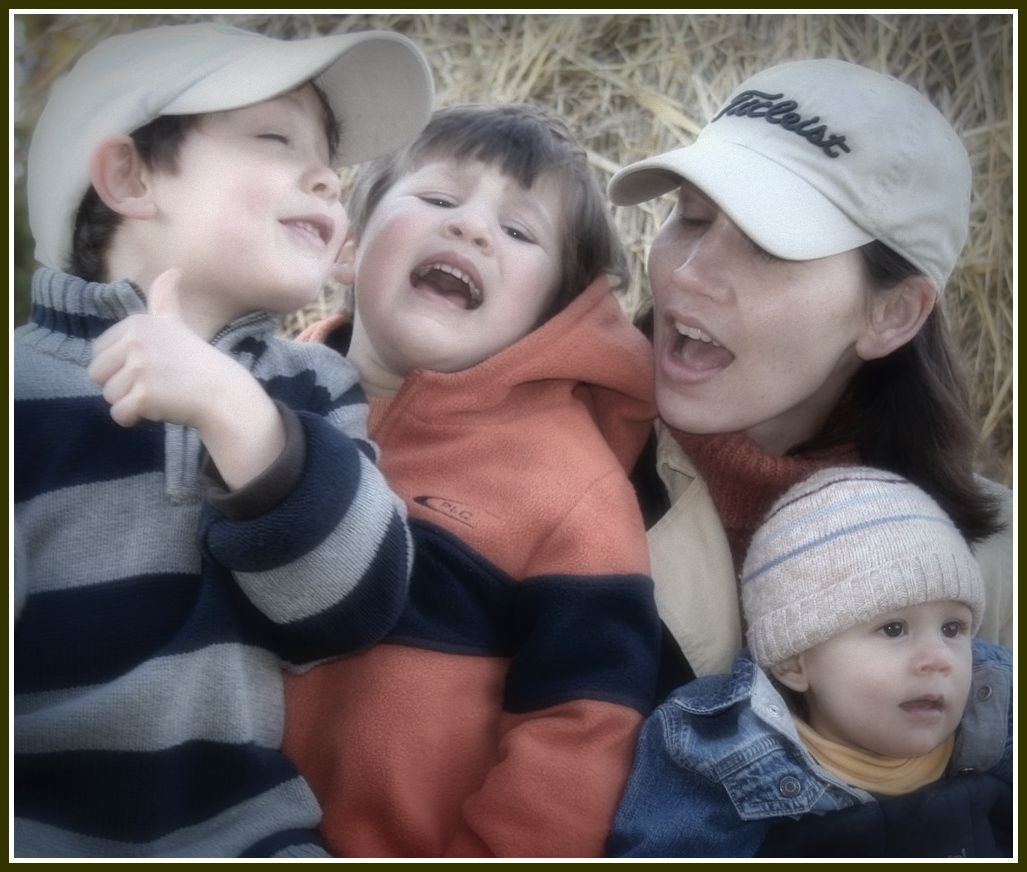Small batch canning.
 Friday, August 13, 2010 at 11:07PM
Friday, August 13, 2010 at 11:07PM This year, we've been the lucky recipients of blackberries from a generous neighbor. Their bushes are thriving this season—and I'm inspired to plant some in our own yard next spring. They dropped off a gallon or so of gorgeous, ripe berries just before they headed out of town last week. I made scones and three pans of cobbler. And even after many, many handfuls of fresh berries, we barely made a dent. So I made jam.
I've already mentioned that I like to can. But there are many days when I am just not up to the process—or, more accurately, not up to the mess. That's why I love small batch canning. I don't have to haul out my large canning pot and I'm not up to my elbows prepping pounds and pounds of fruit. I usually make up enough for a handful of half-pints, mindful that I want to process the jars in my every day stockpot. And I usually do the batch while making lunch for the kidlets—typically an hour investment, tops.
I didn't have any pectin in the house so I was happy to find a pectin-free recipe on a favorite food blog, Sweet Savory Life. It worked like a charm and was so very simple. Two cups of berries + two cups of sugar + two teaspoons of lemon juice. I dumped everything into my enameled Dutch oven, brought it to a hard boil for five minutes, reduced the heat to medium, cooked for fifteen more minutes, and skimmed the foam. That's it. At this point, I could have just stored it in the refrigerator. But I chose to process the jam to make it shelf stable (ten minutes in a boiling water bath—any pot will work as long as the jars are covered by an inch of water. Place a small rack or folded kitchen towel on the bottom to keep the glass jars off the bottom of the pan).

Here are a few of my notes from my canning folder from my kitchen. Yes, I have a canning folder. Lawyers love their folders.
*often times, bottled lemon juice is preferred in canning recipes, due to reliable acidity levels. Of course, fresh will often do, but you might get inconsistent results.
*it's best to use a wide, heavy-bottomed pan for cooking your jam. That's why I love my Dutch oven. It has something to do with the surface area/evaporation rate—sorry, that's all the information I have in my head on it, though I know I read it somewhere (google?). Simply put, jam cooked in my Dutch oven usually gives me jam that will set but jam cooked in a saucepan usually will not set. Go figure.
*I know several folks can via the 'open kettle' or 'upside down' method. But I'm a rule follower and never have because it is not considered safe. Food in Jars recently wrote a post on the matter and I think it's a good read.
*if you have a candy thermometer, use it. Jam making is basically candy making. Cooking your jam to 220 degrees is supposedly the sweet spot. But I've cooked jam to 220 and still had batches not set. And those we call syrups.
Happy canning!
Sandra
 canning | in
canning | in  in the kitchen
in the kitchen 





Reader Comments (1)
Canning is a good way to preserve food like this one. I'm actually into canning salsa recipes myself and I find this site very helpful. All the best! :)